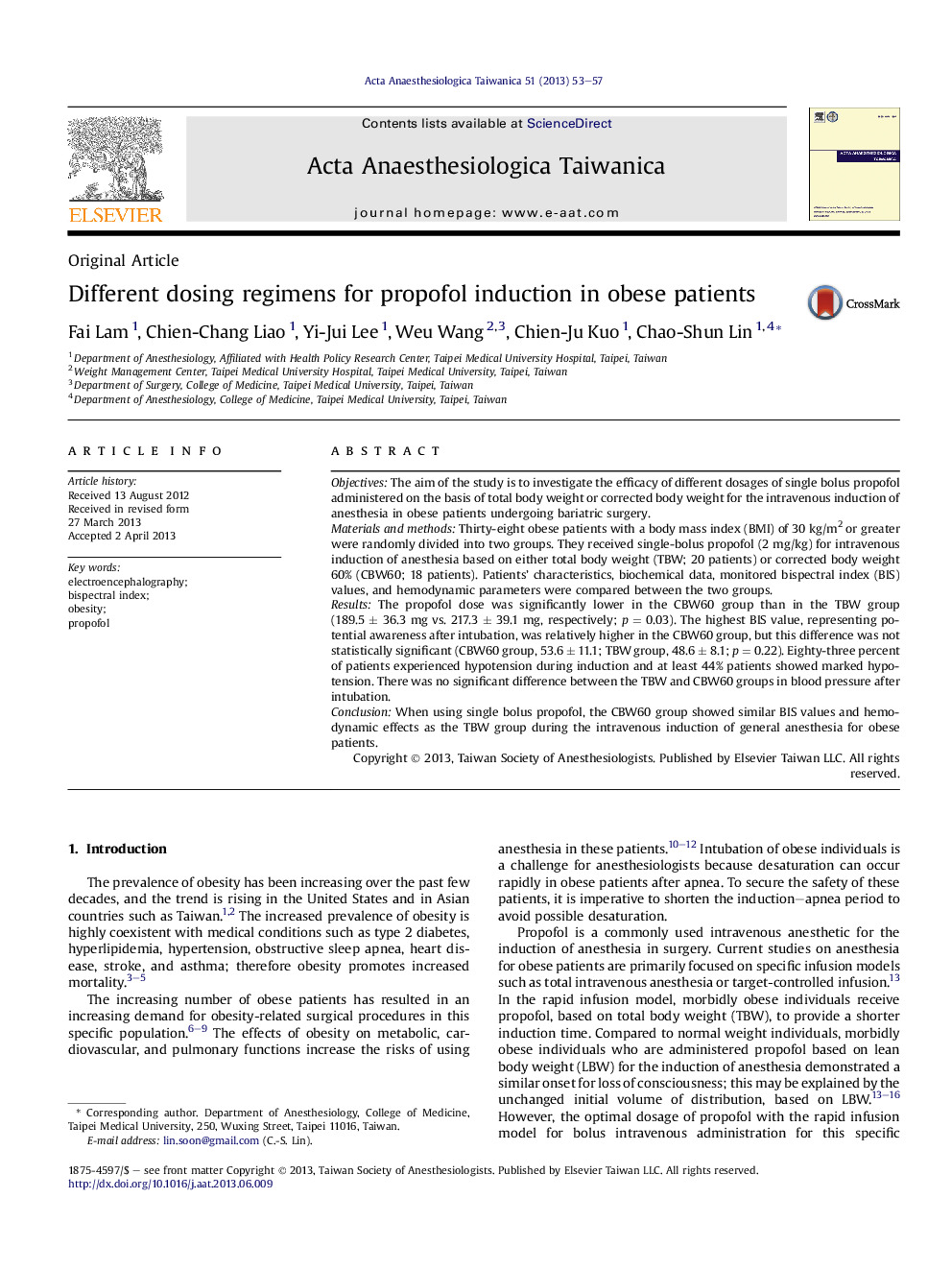| Article ID | Journal | Published Year | Pages | File Type |
|---|---|---|---|---|
| 2741450 | Acta Anaesthesiologica Taiwanica | 2013 | 5 Pages |
ObjectivesThe aim of the study is to investigate the efficacy of different dosages of single bolus propofol administered on the basis of total body weight or corrected body weight for the intravenous induction of anesthesia in obese patients undergoing bariatric surgery.Materials and methodsThirty-eight obese patients with a body mass index (BMI) of 30 kg/m2 or greater were randomly divided into two groups. They received single-bolus propofol (2 mg/kg) for intravenous induction of anesthesia based on either total body weight (TBW; 20 patients) or corrected body weight 60% (CBW60; 18 patients). Patients’ characteristics, biochemical data, monitored bispectral index (BIS) values, and hemodynamic parameters were compared between the two groups.ResultsThe propofol dose was significantly lower in the CBW60 group than in the TBW group (189.5 ± 36.3 mg vs. 217.3 ± 39.1 mg, respectively; p = 0.03). The highest BIS value, representing potential awareness after intubation, was relatively higher in the CBW60 group, but this difference was not statistically significant (CBW60 group, 53.6 ± 11.1; TBW group, 48.6 ± 8.1; p = 0.22). Eighty-three percent of patients experienced hypotension during induction and at least 44% patients showed marked hypotension. There was no significant difference between the TBW and CBW60 groups in blood pressure after intubation.ConclusionWhen using single bolus propofol, the CBW60 group showed similar BIS values and hemodynamic effects as the TBW group during the intravenous induction of general anesthesia for obese patients.
